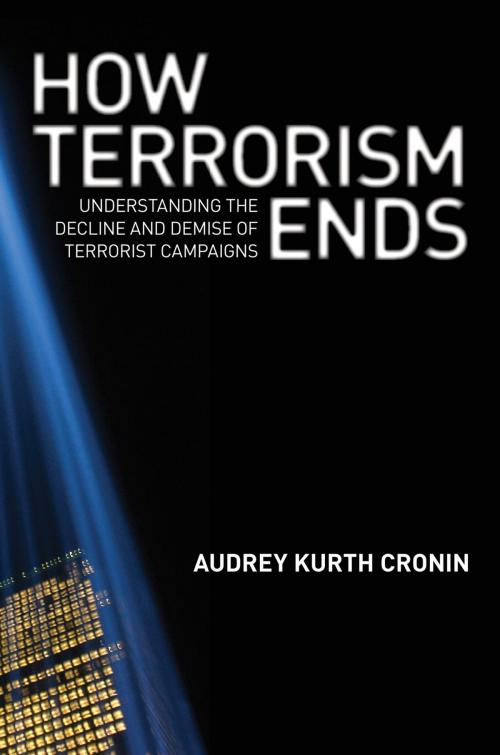How Terrorism Ends
Understanding the Decline and Demise of Terrorist Campaigns
Nonfiction, Social & Cultural Studies, Political Science, International, International Relations| Author: | Audrey Kurth Cronin | ISBN: | 9781400831142 |
| Publisher: | Princeton University Press | Publication: | August 24, 2009 |
| Imprint: | Princeton University Press | Language: | English |
| Author: | Audrey Kurth Cronin |
| ISBN: | 9781400831142 |
| Publisher: | Princeton University Press |
| Publication: | August 24, 2009 |
| Imprint: | Princeton University Press |
| Language: | English |
Amid the fear following 9/11 and other recent terror attacks, it is easy to forget the most important fact about terrorist campaigns: they always come to an end--and often far more quickly than expected. Contrary to what many assume, when it comes to dealing with terrorism it may be more important to understand how it ends than how it begins. Only by understanding the common ways in which terrorist movements have died out or been eradicated in the past can we hope to figure out how to speed the decline of today's terrorist groups, while avoiding unnecessary fears and costly overreactions. In How Terrorism Ends, Audrey Kurth Cronin examines how terrorist campaigns have met their demise over the past two centuries, and applies these enduring lessons to outline a new strategy against al-Qaeda.
This book answers questions such as: How long do terrorist campaigns last? When does targeting the leadership finish a group? When do negotiations lead to the end? Under what conditions do groups transition to other forms of violence, such as insurgency or civil war? How and when do they succeed or fail, and then disappear? Examining a wide range of historical examples--including the anti-tsarist Narodnaya Volya, the Provisional IRA, Peru's Shining Path, Japan's Aum Shinrikyo, and various Palestinian groups--Cronin identifies the ways in which almost all terrorist groups die out, including decapitation (catching or killing the leader), negotiation, repression, and implosion.
How Terrorism Ends is the only comprehensive book on its subject and a rarity among all the books on terrorism--at once practical, optimistic, rigorous, and historical.
Amid the fear following 9/11 and other recent terror attacks, it is easy to forget the most important fact about terrorist campaigns: they always come to an end--and often far more quickly than expected. Contrary to what many assume, when it comes to dealing with terrorism it may be more important to understand how it ends than how it begins. Only by understanding the common ways in which terrorist movements have died out or been eradicated in the past can we hope to figure out how to speed the decline of today's terrorist groups, while avoiding unnecessary fears and costly overreactions. In How Terrorism Ends, Audrey Kurth Cronin examines how terrorist campaigns have met their demise over the past two centuries, and applies these enduring lessons to outline a new strategy against al-Qaeda.
This book answers questions such as: How long do terrorist campaigns last? When does targeting the leadership finish a group? When do negotiations lead to the end? Under what conditions do groups transition to other forms of violence, such as insurgency or civil war? How and when do they succeed or fail, and then disappear? Examining a wide range of historical examples--including the anti-tsarist Narodnaya Volya, the Provisional IRA, Peru's Shining Path, Japan's Aum Shinrikyo, and various Palestinian groups--Cronin identifies the ways in which almost all terrorist groups die out, including decapitation (catching or killing the leader), negotiation, repression, and implosion.
How Terrorism Ends is the only comprehensive book on its subject and a rarity among all the books on terrorism--at once practical, optimistic, rigorous, and historical.















